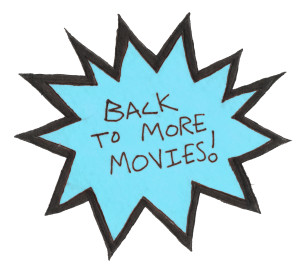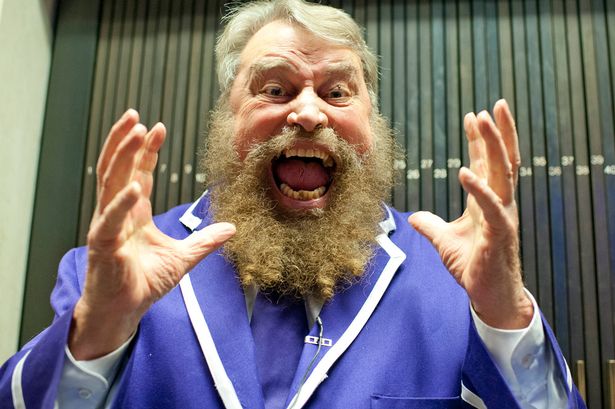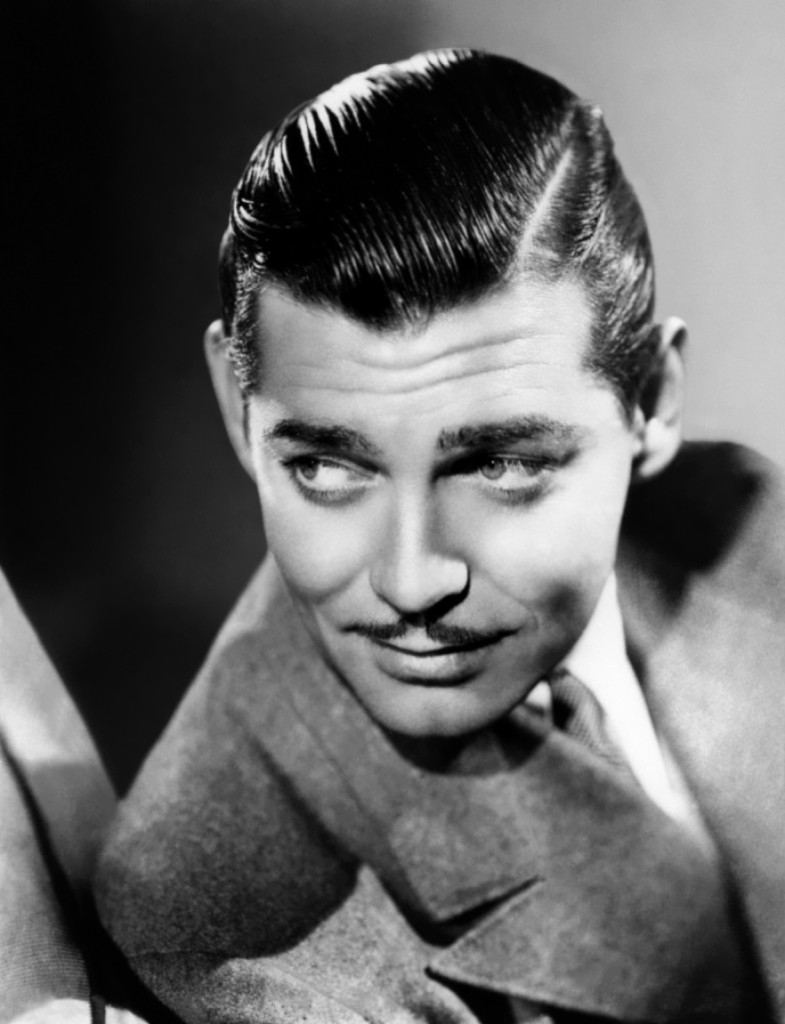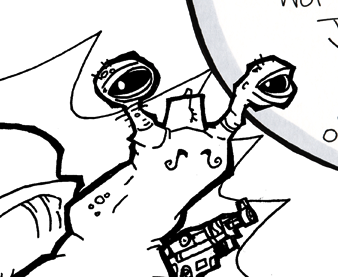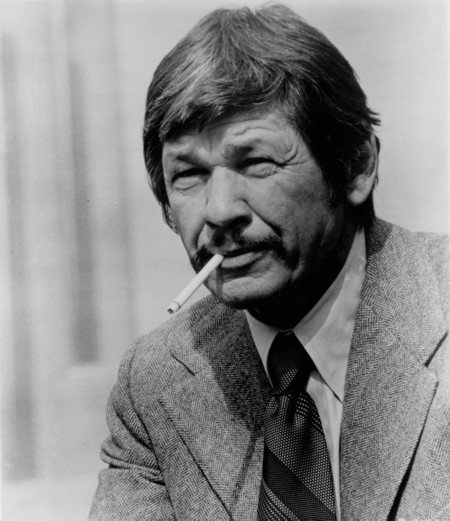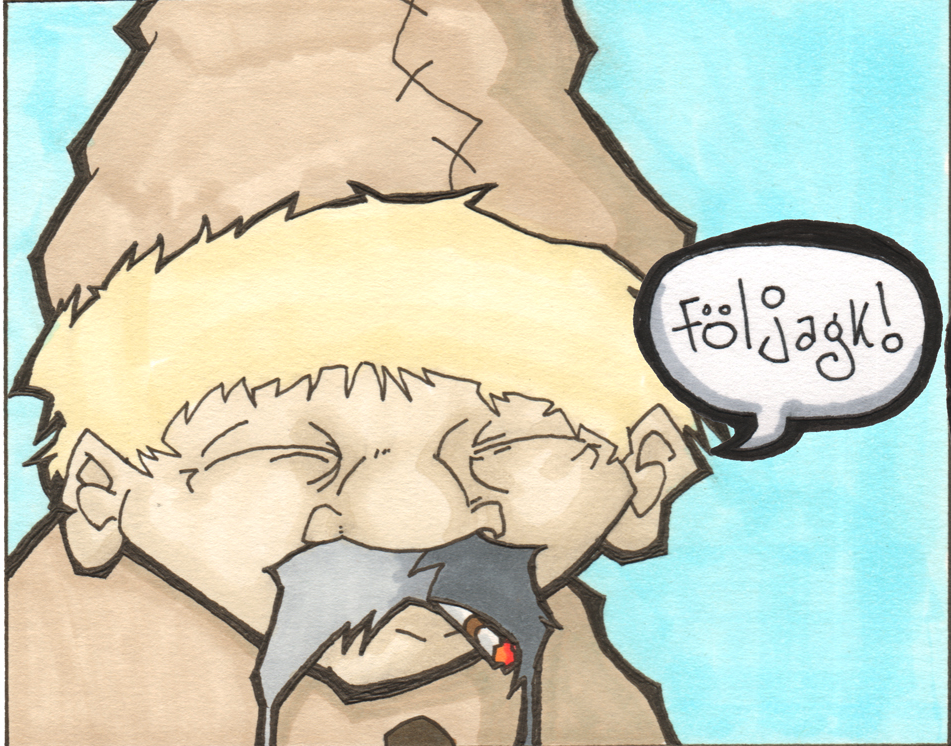Red Sun ~ 1971, Terence Young
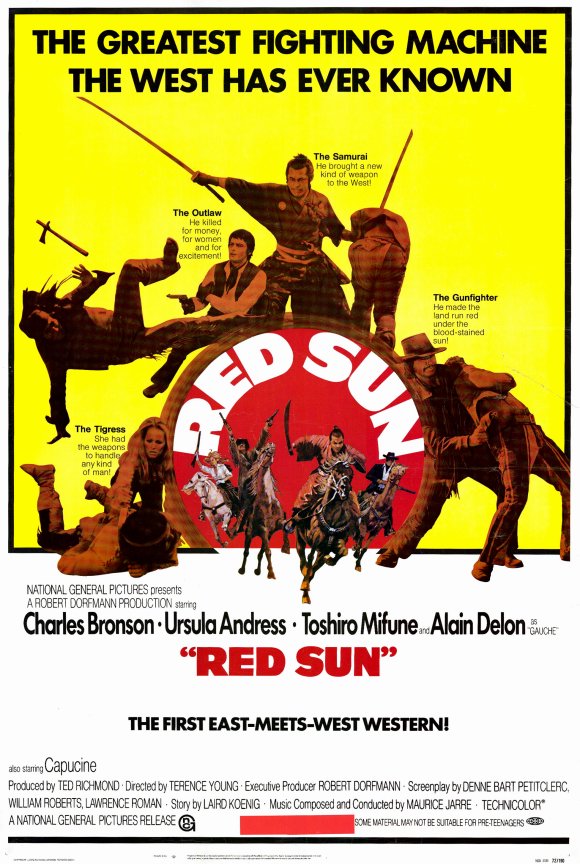
When a botched train robbery leaves a rascally gunfighter betrayed by his gang, he is forced to join forces with a mysterious Asian warrior on a secret mission in the American west. Though they are initially unable to see eye to eye, these two slowly form a mutual respect for one anther, and embark on a grand adventure set against the rugged backdrop of the American frontier, which climaxes in a dramatic, bullet riddled standoff in an old, Spanish style mission. Sound familiar? It damn should, because Shanghai Noon grossed over $99,000,000 worldwide, and that’s an exact description of that movie’s plot. The things is, though, I’m actually talking about Red Sun, the movie Shanghai Noon ripped off, and guess what? The plot is exactly the same in both films.
Some folks I’ve spoken to have claimed that Shanghai Noon was, in fact, an admitted remake of Red Sun, but after some research I have turned up no official acknowledged of the debt Shanghai Noon owes to this film, and therefore I think we can safely say this was probably not an official remake. If I’m correct, then a more accurate description of this phenomena would be ‘blatant plagiarism.’ Any argument that the concept isn’t identical is, frankly, silly, and even worse, the script for Red Sun must have served as a rough framework for Shanghai Noon, because the structure is completely identical in both films, aside from a few added subplots. There are even some gags and emotional beats from the 1971 original that you see repeated in the 2000 rip off, and it’s rare that any remake stays this close to it’s source material, even in the world of actual, and official remakes. You could convince me that my own mother was a sock puppet operated by sasquatch before you even had me considering the notion that the person who wrote Shanghai Noon had never seen Red Sun. No other claim could possibly be more unrealistic, without question, this was a calculated attempt to repackage something great, and distribute it as something original; Shanghai Noon is not homage, it’s theft.
Now, I’m not saying that I hate Shanghai Noon, far from it, in fact. Jackie Chan, who is basically the Mickey Mouse of martial arts, is a global treasure, and his cross demographic appeal doesn’t need to be defended. Similarly, that movie has Owen Wilson Owen Wilsoning harder than he ever has before or since, and all of our lives are richer for it. What I DO mean to say, however, is that if you liked Shanghai Noon the first time, then maybe you’d also like it the REAL first time; and Red Sun IS the REAL first time.
So, having established a little bit that these films are remarkably similar to one another, let’s quickly talk about the few things that make them different. First things first, Red Sun doesn’t have Jackie Chan, it has Toshiro Mifune.
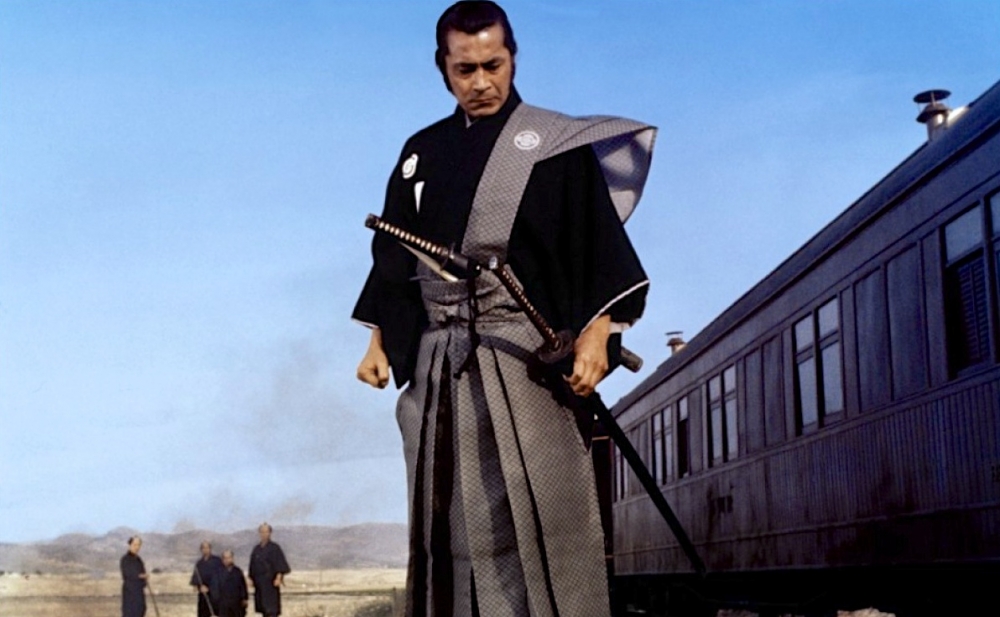 Awesome.
Awesome.
Mifune was actually born in China, but to Japanese parents, and is most readily identified as a Japanese actor, so in this version, our Asian delegates come not from China, but from Japan. This changes some superficial aspects of the movie, and gives us more swords, and less kung fu, but that it in no way hinders Red Sun’s ability to kick ass and be awesome. Jackie Chan and his hand-to-hand hijinks are fantastic, yes, but Mifune is a bad ass the likes of which we only see a few times per generation, and in this movie he brings the unreasonably cool art of samurai sword fighting to the American wild west with many a guttural bark and angular scowl, which is every bit as awesome in execution as it sounds on paper. Comparing Mifune to Chan is a real apples to oranges type situation, but I’d say the two are equally cool, regardless of how fundamentally different they are.
Similarly, where Shanghai Noon had Owen Wilson, here we have Charles Bronson, the impossibly easy-to-like murder enthusiast from the blood splattered Death Wish franchise.
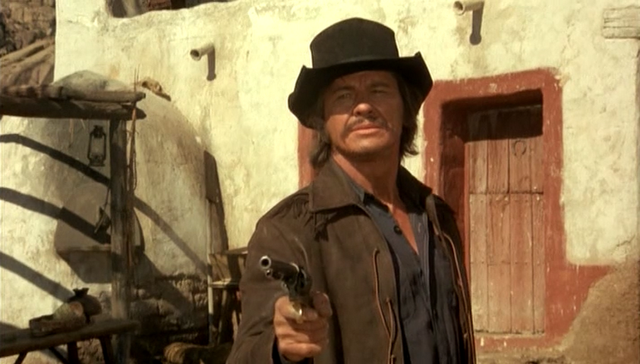 Charles Bronson’s natural habitat is pretty much anywhere, provided he’s pointing a gun at someone.
Charles Bronson’s natural habitat is pretty much anywhere, provided he’s pointing a gun at someone.
In Red Sun, Bronson totally kills it, literally, and figuratively. as an actor, Bronson always managed to balance sardonic, wry charm with gritty, violent menace in a way that made him equally intimidating and likable, and off the charts on both counts. He does that here as well as he ever has, making his character incalculably more bad ass than Wilson’s inept, gun-slinging charmer, but this feels entirely appropriate since Red Sun is a much rougher ride.
And it really is, Red Sun is darker, and much more violent than the good natured and outwardly comedic Shanghai Noon. Charles Bronson does tell a few jokes here and there, but his wisecracking never manages to outpace his body count, and Mifune only has two modes; scowl, and kill… Which is so, so awesome. Also, there’s some nudity in Red Sun, and the Lucy Liu/Princess Pei Pei character is absent entirely. Instead, our female lead is a prostitute played by Ursula Andress, who Charles Bronson kidnaps in order to piss off the bad guy. So, yeah. Murder and hookers. Maybe not a film to watch with the youngsters around, unless you want to train them to be awesome or something.
While Red Sun’s legacy is felt in every single moment of Shanghai Noon, the two films actually have differing thesis statements. Red Sun is basically a redemption story, with Charles Bronson playing the real central character, and Mifune teetering over into sidekick territory. In that film, Bronson and Mifune’s characters are roughly equal in their status as capable warriors, but Bronson has no moral compass and no sense of honor whatsoever. Through his meeting with Mifune, he witnesses firsthand the sturdy foreigner’s unwavering dedication to the samurai code, and Bronson slowly comes to understand the error in living life as a murderous, wise-cracking shit head. Thus, he decides to turn over a new leaf, a new, blood drenched, bullet riddled leaf, and maybe pay attention to morality every once-in-a-while. Shanghai Noon, on the other hand is more about Jackie Chan’s character, who, through his adventures with Owen Wilson, realizes that his centuries old beliefs and customs about honor and dedication to the Chinese Emperor are totally silly, and that instead he should just do whatever he wants, because China is really far away. Seriously, that’s the moral to that movie, go back and watch it. There are multiple scenes in the film where Chan says something about his oath to protect the princess, or what have you, and Wilson mocks him dismissively, saying that he’s in America now, the sun may rise in the east, but it sets in the West, so he shouldn’t feel shackled to the honor code he’s lived by for his entire life. This is basically an existential version of the “if they’re in a different area code, it’s not cheating” defense commonly used by douche bags and adulterers to justify the antics of their wayward genitals, and it’s also the exact opposite of the thesis statement seen in Red Sun. All things considered, I’m not wild about Shanghai Noon’s small minded and culturally reckless thesis statement. ‘Merca.
Anyway. This review has mostly been about how Shanghai Noon ripped off Red Sun, instead of actually reviewing Red Sun, so I guess did kind of a shitty job. Oh well. Sorry, folks! Let me quickly say this; Red Sun is awesome, and criminally under-appreciated. The Wilson/Chan dynamic you loved in 2000 actually worked even better in 1971 with Mifune and Bronson, and honest, the talent on screen here isn’t a step down from what you’ve already seen, it’s a step up. Plus, crazily enough, Red Sun is actually made MORE entertaining if you come into it having already seen Shanghai Noon like, a hundred times. It sort of makes the experience seem almost surreal, like you somehow found the “real” Shanghai Noon. It feels like some sort of secret movie that the world forgot, and that Wilson and Chan tried to bury. All in all, it’s a pretty great find, and oddly enough, I think that Red Sun is equally recommendable if you loved Shanghai Noon, OR if you hated it.
Well worth checking out.
A

